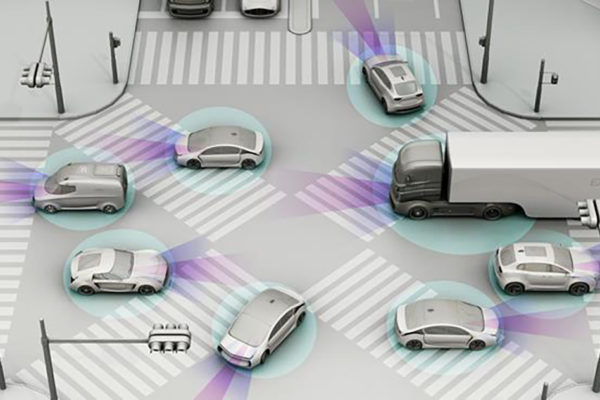Advancing the capability of high-powered fuel cells
A team of engineers in the McKelvey School of Engineering has developed a high-powered fuel cell that operates at double the voltage of today’s commercial fuel cells. It could power underwater vehicles, drones and eventually electric aircraft at a significantly lower cost.
Engineers to study better design for robotics, autonomous technology
Xuan “Silvia” Zhang and Christopher Gill, both faculty in the School of Engineering & Applied Science at Washington University in St. Louis, received a four-year, $936,504 grant from the National Science Foundation to study how to orchestrate modular power in a modular manner at the mesoscale, an area that has not yet been studied.
Art through the lens of a drone
We are living at the dawn of the drone age. In January, the Kemper Art Museum will present “To See Without Being Seen: Contemporary Art and Drone Warfare.” The exhibition raises timely questions about power, technology, surveillance and fear.
Drones may violate international law
As President Obama gives a speech on national security — including defending U.S. use of drones to combat terrorism — Leila Sadat, JD, international law expert and professor of law at Washington University in St. Louis, argues that such targeted killing by unmanned planes may violate international humanitarian law. Legalities aside, she also questions whether it promotes U.S. interests abroad.
Law struggling to catch up with use of drone technology, says privacy expert
Charlottesville, Va. recently became the first town
in the U.S. to pass an anti-drone resolution, calling for a restriction
on the use of the unmanned surveillance vehicles. “For drones, I
think the problem is that they do have some legitimate law enforcement
purposes, but they raise massive problems of invasion of privacy and
government surveillance that we need to think through before we deploy
drones in vast numbers in our skies,” says Neil Richards, professor of
law at Washington University in St. Louis.



